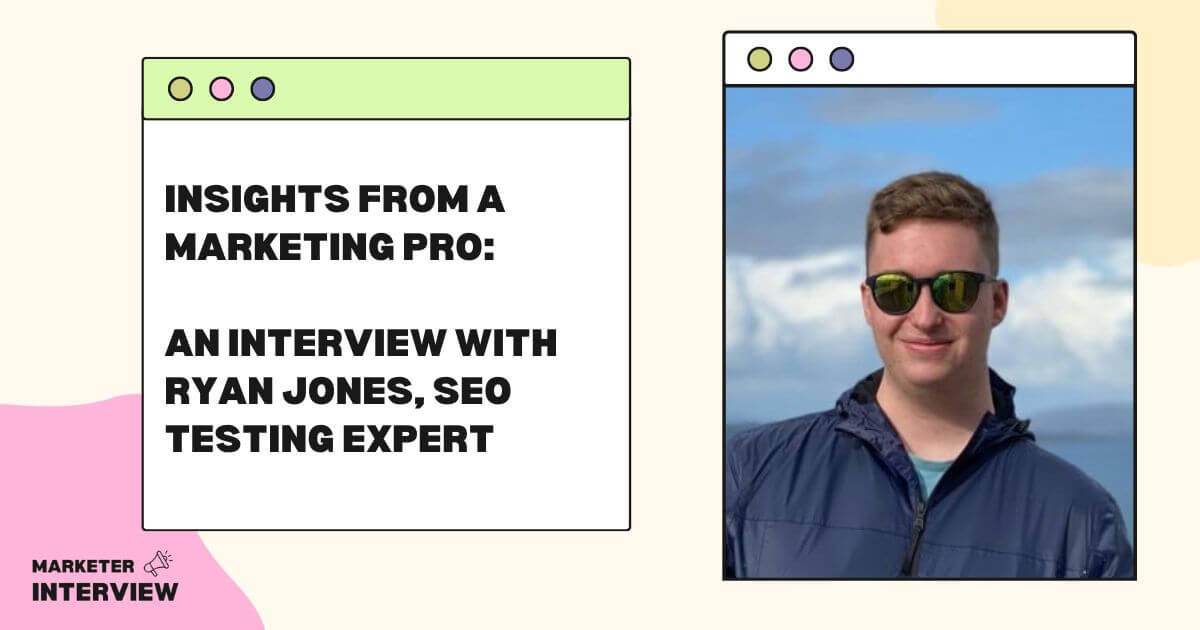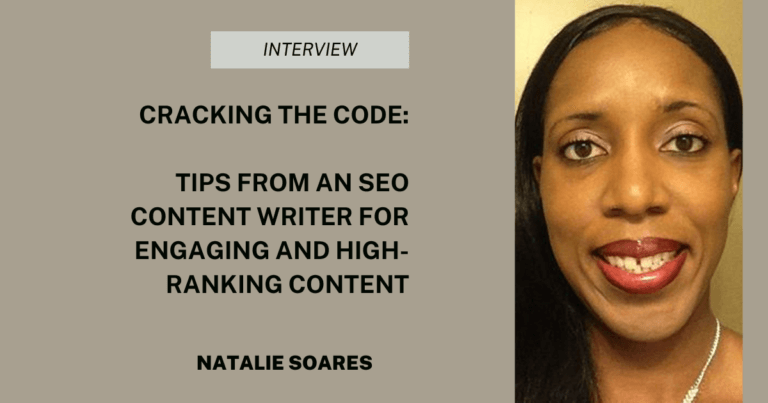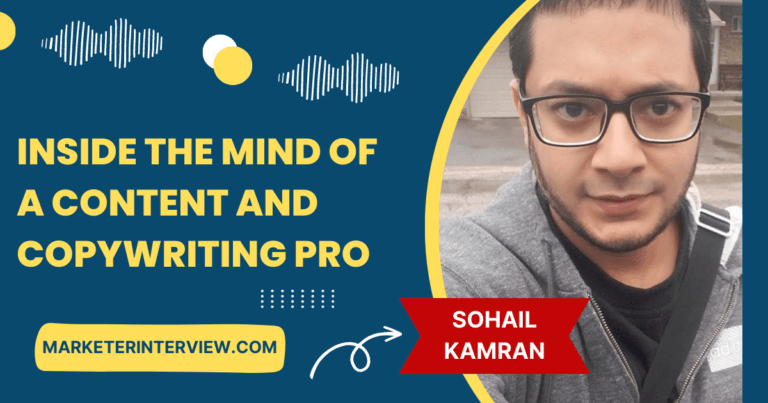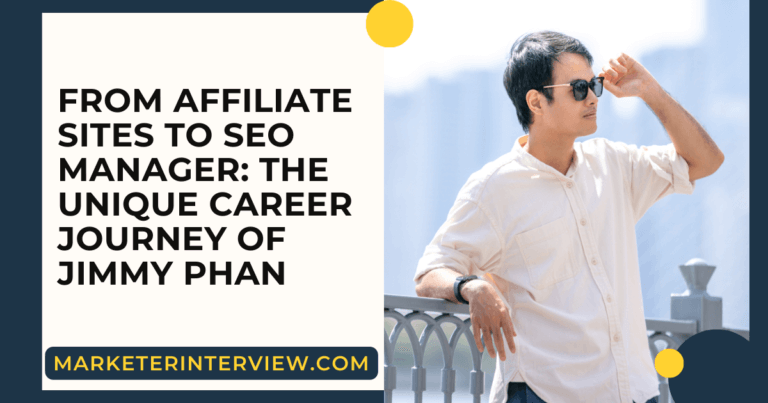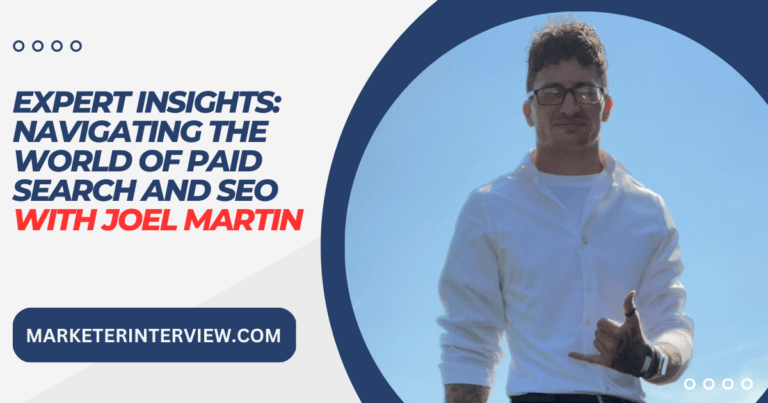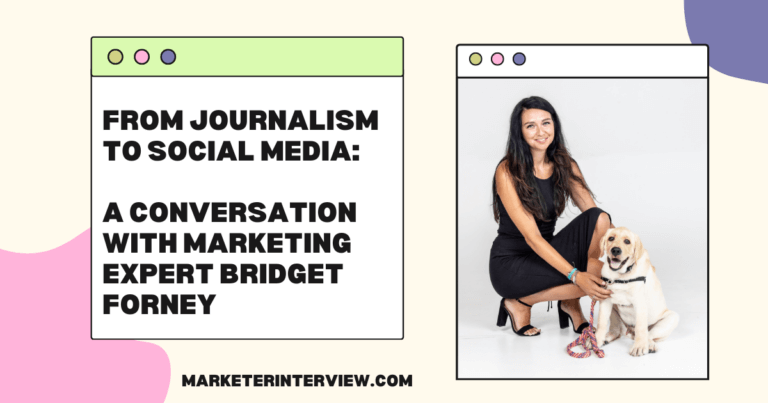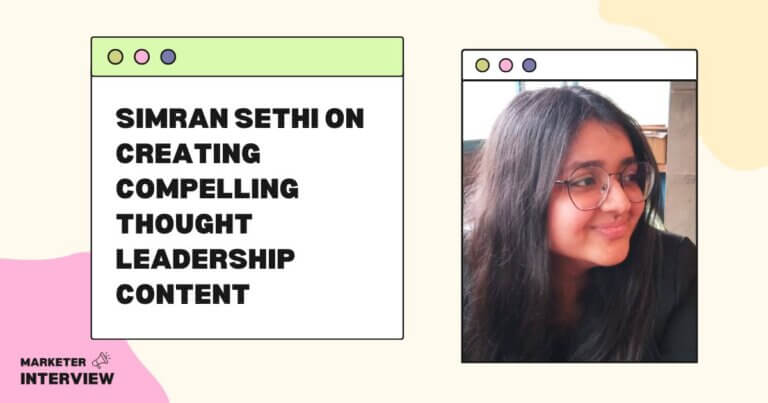Insights from a Marketing Pro: An Interview with Ryan Jones, SEO Testing Expert
Insights from a Marketing Pro: An Interview with Ryan Jones, SEO Testing Expert
Welcome to the interview with Ryan Jones, the Marketing Manager at SEOTesting.
In this interview, we will explore Ryan’s career path, his challenges, his thoughts on SEO testing, data-driven decision-making in marketing, and the importance of storytelling in content marketing.
Ryan started his career in digital marketing through an apprenticeship, and he quickly discovered his passion for SEO. He shares his experience working on a challenging project and how he overcame obstacles to succeed.
Let’s dive in!
Contents
- 1 What led you to pursue a career in marketing?
- 2 Can you share an example of a particularly challenging project you worked?
- 3 What motivated you to focus on SEO testing?
- 4 Can you speak to the importance of data-driven decision-making in marketing?
- 5 Can you walk us through a typical day in your role and what tasks you prioritize?
- 6 Can you discuss the importance of storytelling in content marketing?
- 7 How do you stay ahead of algorithm changes and updates from search engines like Google?
- 8 What tools and software do you rely heavily on in your work?
- 9 Can you speak to the challenges of marketing for a SaaS product?
- 10 How do you balance the need for short-term results with the importance of building long-term relationships with customers and clients?
- 11 What advice would you offer someone just starting in the marketing industry, particularly in SEO, growth hacking, and SaaS marketing?
What led you to pursue a career in marketing?
A small “fun fact” about me is that I didn’t plan to work in marketing. Growing up in the UK, you leave school at 16 and have several options.
What you want to do in your career is essential to choose suitable options. Want to be a doctor? First, you need to head to A-Levels and go to university. Want to be a builder, you’ll probably need to do a vocational course at college.
I had no idea what I wanted to do when leaving school, so I picked an apprenticeship, a great way to learn about a job role and career while working for a company and earning a little bit of money.
I was always good with computers, so I picked a digital marketing apprenticeship at an agency nearby. Luckily, I loved the role and stuck with it! It has worked out well for me so far.
One good example is from just a year or two ago, working on a large website migration for an e-commerce brand doing north of 6-figures in revenue per year.
They were switching the website from Magento to BigCommerce to start scaling. Part of this migration included a whole host of URL changes necessary to facilitate the migration.
The one problem with this: I was heading up the SEO for the brand, and this was the first time I had never worked on a website migration. I had no idea what I was doing. Luckily, I had a few tricks (and people) up my sleeve that came in clutch to help me!
I first communicated my lack of knowledge with the company I worked for, allowing us to bring in a freelancer to assist with the migration. I also contacted a few friends on “SEO Twitter” for advice, and they gave me some great comments that helped steer me in the right direction.
We had a successful migration, a very short-term loss in traffic (fully expected), which soon bounced back and surpassed where we were before.
What motivated you to focus on SEO testing?
My first foray with SEO testing came in my very first job. Initially, a client came to us looking for some quick wins to try and take up more organic visibility from their competitors.
We quickly theorized that improving the client’s offer (compared to competitors) and updating the meta titles and descriptions to show this could hopefully improve CTR and, therefore, ranking.
Instead of making all the changes in one swift hit and “hoping for the best,” my super intelligent manager insisted we change a small subset of pages and monitor the impact. That way, if the test yielded negative results, it was only on a handful of pages.
Manually monitoring this was an uphill task. We didn’t have access to the software and tools we do now, but we found that the test was successful, rolled out the changes to the rest of the site, and saw some great results.
Since then, I’ve advocated for proper SEO testing regimes across all the websites I have worked on. Nothing gets changed on a site without an appropriate test first.
Can you speak to the importance of data-driven decision-making in marketing?
As time has gone on, data-driven decision-making within marketing has become more and more critical. Companies have acted on impulse rather than data for too long, which has cost them both in the short and long term.
Think back to my answer above on changing a small subset of page metadata before changing the metadata across the site. If we had been wrong in the hypothesis and made the changes to the whole site, we’d have seen a massive reduction in search visibility across the site, all because we didn’t find the data to support it beforehand.
With tools like SEOTesting, SparkToro, Ahrefs, and more, we can use actual data to leverage and make better decisions. For example, we can test page changes before rolling them out across sites, find what customers speak about on social media to target them better, solve their problems, and more.
Leveraging data is the best thing marketers can do today. Forget AI. Forget everything else. If you’re not leveraging data correctly, you will fall behind.
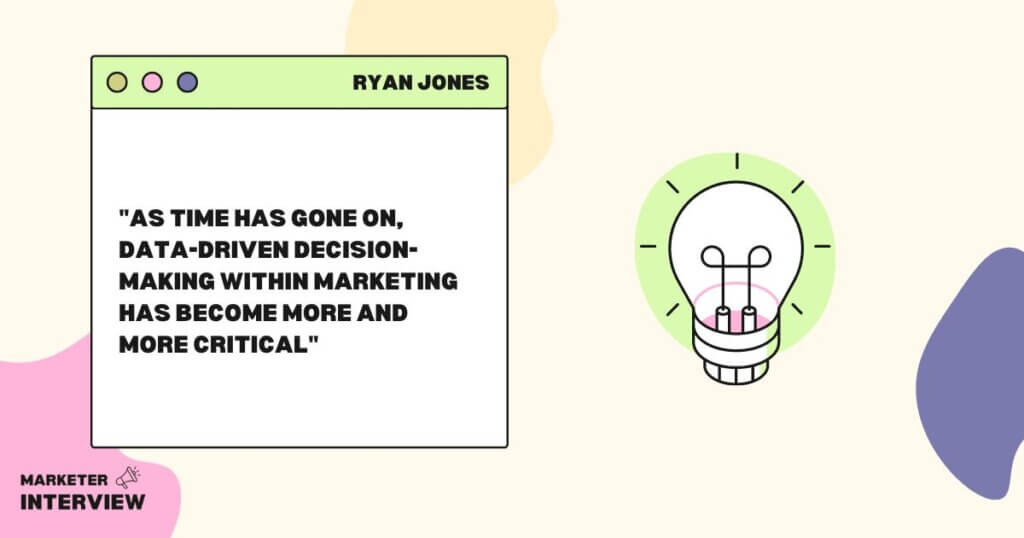
Can you walk us through a typical day in your role and what tasks you prioritize?
My role at SEOTesting, as their Marketing Manager, is broad. I’ll have a hand in all of our marketing, from our SEO strategy to social media channels like YouTube and TikTok.
My typical day could start with writing a blog post or new resource for our blog, followed by doing interviews or podcasts like this to help improve brand awareness across the board.
I could spend some afternoons proofing YouTube videos before they go live, doing link building, or promoting our free Rank Tracker.
It sounds super cliche, but no two days are the same. I could be fully SEO-focused one day and then work on something completely different the next. It’s wonderful!
Can you discuss the importance of storytelling in content marketing?
Storytelling is probably the most important thing when we’re talking about content marketing.
It’s all good knowing your stuff and being a thought leader. Still, if you’re not also keeping your customers (and potential customers) engaged with stories that allow them to relate to you and the brand, then there’s not a lot of point in spending all this time and money on your content marketing.
Look at the rise of influencer marketing. For instance, people follow and like when they can relate to something or someone.
We at SEOTesting do this with every piece of content we put out. Don’t get me wrong, it’s difficult to achieve, but if we can put some relatable content into our work at certain intervals, we will.
It can be done in several different ways. A screenshot of a common problem we know our customers face or a link to a YouTube video that explains the solution in a more fun way. This works well for us and our brand.
How do you stay ahead of algorithm changes and updates from search engines like Google?
Google algorithm changes are tricky. You can do everything right and still “be hit” when a broad algorithm update is released. It’s happened to me in the past, and I can safely say it’s something I do not want to see happen again, as much as I can’t guarantee that!
I do certain things to ensure I stay ahead of the algorithm as much as possible, especially regarding blog content.
I first ensure that any content I create is the best on the internet for that particular thing. Is it an SEO testing guide? I make the best one out there.
I also ensure every piece of content I produce is kept updated regularly. Every quarter, I’ll go through and update any information that has become outdated or improve bits on the post where competitors have done something better. It’s small and does not take too much time, but it’s worth it in the end!
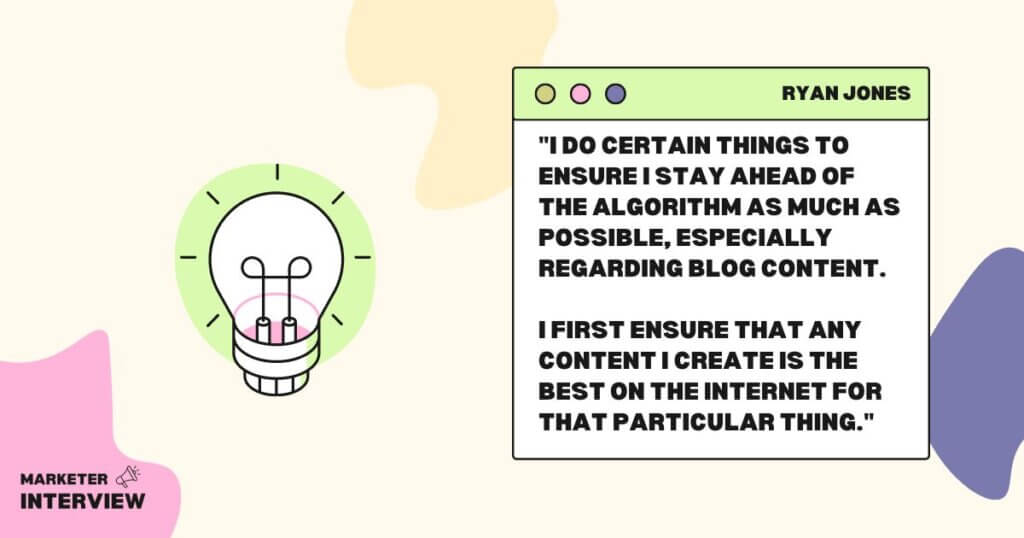
What tools and software do you rely heavily on in your work?
There are a few tools I find myself coming back to time and time again in my day-to-day role.
The first, naturally, is SEOTesting. I don’t just work for the brand. I was a customer and brand ambassador long before I was an employee. For the past two to three years, every single change I have made to a website, whether my own site or a client site, has been tracked on SEOTesting. It’s a tool I use daily.
The second is one of the most used tools in any marketer’s life: Ahrefs. I started using it when my career began in 2015, and I have not looked back. I never even considered switching tools. Whether I’m researching keywords or analyzing backlinks, Ahrefs is my go-to.
Given the rise in the popularity of AI at the moment, I’d be remiss if I didn’t mention ChatGPT as one of my most used tools. I don’t use it in the way people might think, however. For example, I don’t use ChatGPT to generate any website content.
I mainly use ChatGPT to create REGEX scripts to filter down Search Console data better. This is a trick I’ve been using for the past few months, and I love it. It’s something I do every single day now.
Can you speak to the challenges of marketing for a SaaS product?
There are a few challenges when marketing a SaaS product compared to a more traditional product/service.
SaaS products are often technically complex and require specific training compared to a more traditional product or service that wouldn’t need any training at all. Subscription-based pricing is also another hurdle to get around, especially when it comes to customer retention.
Where marketing for SaaS is a little different is there is a massive focus on customer education. Creating blog posts, YouTube videos, and webinars, educating customers on how to use the product properly, is huge for customer purchase and retention. If customers don’t feel they can use the product to its full potential, they will cancel and look for another solution.
Trials and demos are standard practices when marketing SaaS products because they need to be. For example, I have seen many people on Twitter complain when SaaS companies do not show a transparent pricing structure on their websites. So that’s why we do.
As are other companies, we’re very clear about what the tool costs per month and what you get based on what you pay. We also offer free trials in the hope that the customer has such a good experience using the tool that they stay on.
With many SaaS product marketing, you’ll find that the trials and customer education tactics work hand-in-hand. So once a customer signs up, they have a wealth of information at their fingertips showing them how to get the most use out of the tool, along with the transparent and fair pricing structure.
Hopefully, this gives them the best chance of converting to paying customers rather than churning.
How do you balance the need for short-term results with the importance of building long-term relationships with customers and clients?
There’s no doubt that marketing takes time, in most cases, to properly “kick in” and generate good results. That’s the same whether it’s SEO, social media marketing, or content marketing campaigns. Unless you strike gold and go viral in the first couple of months, you will be slogging it out, making marginal gains until it starts to compound and grow.
What’s worked for me in the past is focussing on getting some quick wins through the door first, which gains trust with the client or company I am working for in the short term while putting the wheels in motion for longer-term success.
This is easier in SEO as there are a lot of quick wins still to be had, but you can find these types of quick wins in other disciplines too.
What advice would you offer someone just starting in the marketing industry, particularly in SEO, growth hacking, and SaaS marketing?
This sounds counterintuitive, so give me a second, but get yourself on Twitter if you are not already. Introduce yourself as a marketer, new to the industry, and watch how the marketing world flocks to offer you helpful tips and advice.
I’ve met some of the best people in my professional life following speaking to them on Twitter. A fun fact, I got this job at SEOTesting by initially connecting with the founder on Twitter and building a relationship from there!
You can find answers to questions, mentors, and good friends on Twitter. It’s a marketing goldmine.
Beyond that, stay inquisitive. Don’t you think you know enough? You need to learn from everyone. Yes, even people who are younger and have less experience!
